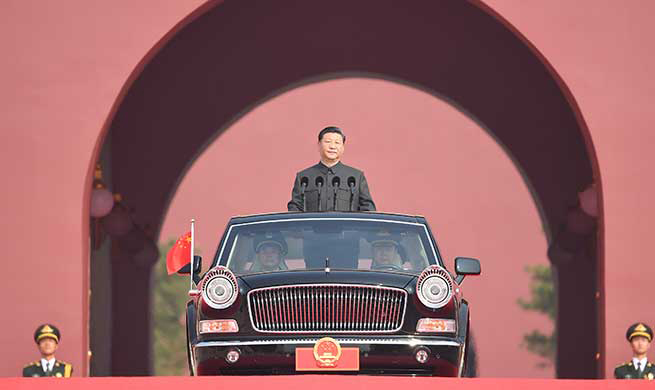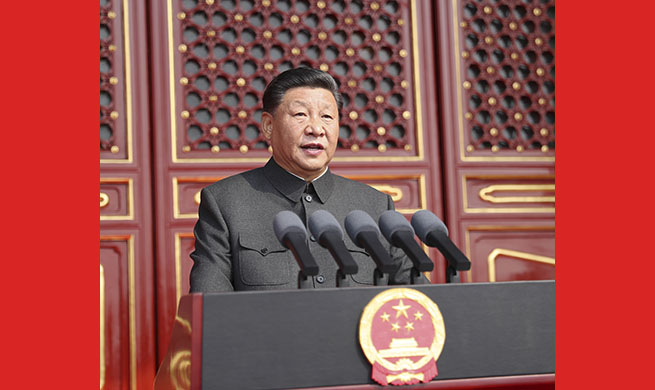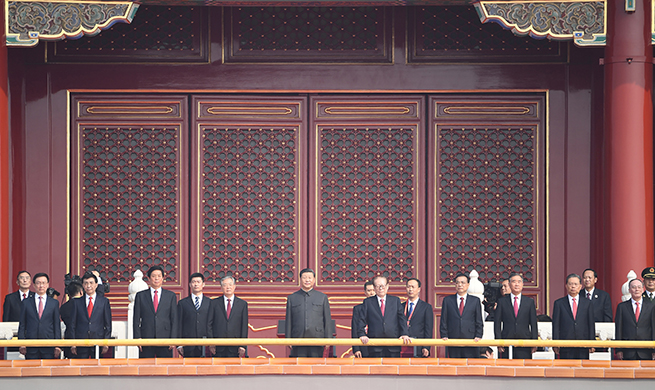BERLIN, Oct. 2 (Xinhua) -- Almost a quarter of German households still used oil-fired heating systems in 2018, the German Federal Statistical Office (Destatis) said on Wednesday.
According to a survey of the housing market in Germany in 2018 conducted by Destatis, oil-fired heating was "slow to disappear" in the country and decreased by 2.3 percent only compared to 2014.
Especially in recently built homes, oil-fired heating systems were rarely installed. Destatis noted that only 0.6 percent of residential buildings constructed in 2018 used oil-fired heating. Natural gas was used by more than half of German households for heating.
In order to reduce carbon emissions from heating, the German government has recently prohibited the installation of new oil-fired heating systems in Germany from 2026 as part of a larger climate package.
Germans who replace an old oil-fired heating system with a more climate-friendly model will be reimbursed for up to 40 percent of the costs.
According to Destatis, the share of oil-heated homes varied between around 10 percent and more than 50 percent across Germany in 2018.
In Bavaria, more than one third of households still used oil for their heating systems, while in Brandenburg and Bremen this figure was 10.7 percent.
According to the association of craftsmen in the Bavarian state capital Munich and other municipalities (SHK), the lack of infrastructure made it difficult to completely avoid the use of oil-fired heating systems.
"There are areas where a building cannot simply be connected to the gas or district heating network because the infrastructure is lacking," said SHK board member Josef Gantner.
Furthermore, Gantner recalled that "years ago the government had already proposed but not implemented tax incentives for energy-efficient heating systems."
Germany's governing parties decided in March 2018 to offer tax incentives for the energetic refurbishment of buildings and agreed to "provide applicants with a choice between a grant subsidy and a reduction in taxable income."
Over the past 10 years, "the introduction of tax incentives has repeatedly been discussed," the German Economic Institute (IW) said, but "the political obstacles were so permanent and numerous that all attempts failed."
In order to compensate for the additional costs caused by CO2 pricing, it would be important that "private households are given sufficient time to renovate their buildings to make them more energy-efficient," said IW senior economist Ralph Henger, commenting on the upcoming ban on oil-fired heating in Germany.













